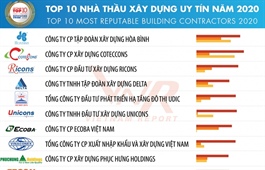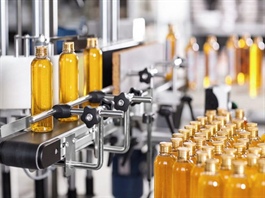Seminar calls for farm production, consumption link-ups within southern economic hub
Seminar calls for farm production, consumption link-ups within southern economic hub
Localities in the Southern Key Economic Region need to enhance co-operation to develop safe agricultural areas and ensure consumption of safe food and farm produce, a seminar heard in HCM City yesterday. 
Nguyen Huynh Trang, deputy chairman of the city Department of Industry and Trade, said linkages for production and consumption of agricultural products and foods is important for promoting economic development in the region and the application of good agricultural practices.
As the chair of the Southern Key Economic Region Council, the city has assigned the HCM City University of Economics in collaboration with the city Department of Industry and Trade, and partners to develop a project named "Building linkages in production and consumption of agricultural products and foodstuffs towards ensuring food safety standards between HCM City and provinces and cities in the Southern Key Economic Region."
The seminar sought to collect participants’ opinions on zoning areas for safe agricultural produce and foodstuffs and suggest policies for localities in the region for building linkages in production and consumption of agricultural produce and foods from the region, she said.
Tran Tien Khai, representative of the project’s executive board, said, “The provinces and city in the region have not established close links with each other for formulating production plans locally, and do not share information about market and demand to balance supply and demand.”
Localities in the region have enhanced food safety management and adopted VietGAP standards for cultivation and animal breeding, but only 5-10 per cent of the products meet those standards.
“Farmers have sufficient knowledge to apply VietGAP standards in their production and awareness of safe food production, but many of them do not apply them.”
The cost of growing vegetables to VietGAP standards is higher than conventional methods, while productivity is lower and the appearance of the vegetables is not very attractive, he said.
Modern distribution channels can buy around 20 per cent of vegetables grown to VietGAP standards. So farmers have to sell the rest at traditional markets at normal prices, which discourages them from adopting the standards, he said.
“Farmers usually care about short-term benefits over long-term and sustainable benefits.”
He suggested that localities should make plans for safe farm produce production and consumption as well as expand the application of VietGAP standard in production.
Nguyen Ngoc Hoa, another representative of the project’s executive board, said the region has about 21-22 million consumers with increasing income.
With the consultancy and consensus of provinces in the region, HCM City should preside building a zoning plan on safe farm produce production and trade within the region so that each province in the region will base on that to make plan for its local production and trade.
“HCM City is the largest market in the region, consuming about 50-60 per cent of farm produce and food products manufactured in other localities.
“Provinces all have demand to sell their products in the city and are willing to comply with regulations prescribed by the city.”
Representatives of many provinces and cities in the region said building a wholesale market and centre for agricultural products and enhancing food safety management from the production to consumption stages are urgent requirements.
They also called for enhancing traceability of products to ensure food safety.
Producers must focus more on building brands for their products and improve product designs so that they could be exported, they added.
The region, which consists of HCM City and seven provinces – Tay Ninh, Binh Phuoc, Binh Duong, Dong Nai, Ba Ria-Vung Tau, Long An, and Tien Giang -- plays a special role in the country’s socio-economic development, accounting for more than 45.5 per cent of its GDP.

























